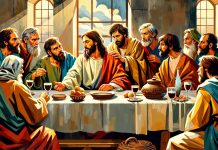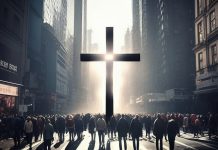More than 300 bodies have been found in a Kenyan forest and at least 600 people are missing. The victims, including children, belonged to an apocalyptic cult that carried out a plan of mass suicide by starvation. The shock of the Shakahola massacre has reverberated beyond Kenya’s borders, raising disturbing questions, including how the message of Revelation, part of the good news of the Gospel, can lead to reckless behaviour, murder, and even genocide.
In the second half of April 2023, Kenyan police raided the farm of Pastor Paul Nthenge Mackenzie and uncovered 65 bodies buried in graves that weren’t even marked, as well as dozens of people emaciated or dying from prolonged fasting. The only people who hadn’t started fasting were Mackenzie and his colleague, Pastor Zablon Wa Yesu. Their role, according to early information, was to lead people in this fast to facilitate their “encounter with Jesus.”
Subsequent investigations revealed that the number of victims was much higher and that some had been “assisted” to die. Autopsies revealed signs of asphyxia, strangulation, and blunt force trauma.
The road from a “normal church” to the Shakahola massacre
Originally a taxi driver, Paul Mackenzie started his own church in 2002 on land owned by Ruth Kahindi, a woman whom he had met in a Baptist church and who, impressed by his oratorical skills, invited him to speak at her home.
This is how Good News International was born, “a normal church at the beginning“, says Mrs Kahindi’s daughter, recalling that the pastor preached salvation through faith in Jesus and upheld the supreme authority of the Bible regarding matters of faith. In 2008, their partnership ended because of the pastor’s obsession with apocalyptic themes, but also because of suspicions that he had embezzled the tithes of his parishioners.
Titus Katana, who joined the church in 2015 and later became deputy pastor, also withdrew from working with Mackenzie. According to him, transgressions in Mackenzie’s teachings were the reason for the split. Mackenzie encouraged his followers to avoid the medical system, not to send their children to school, not to vaccinate them, and advised mothers not to seek medical assistance in childbirth.
Although he claimed to have received supernatural instructions about the sinful nature of education and medicine, financial interests intertwined with his preaching. Mackenzie opened his own unaccredited school (for which he of course charged fees) and claimed to possess the gift of healing, which he practised on the sick for a fee.
Following his dispute with Ruth Kahindi, the pastor built a church on the outskirts of Malinda and became increasingly famous for his apocalyptic sermons, which were broadcast on the internet and across Africa on his Times TV channel.
In 2019, the televangelist announced that he would be retiring to the Shakahola forest where he would establish a so-called New Holy Land in anticipation of the end of the world. The land was divided into districts with biblical names (Jericho, Galilee, Bethlehem). Hundreds of followers flocked to his 800-acre (323-hectare) compound, buying plots of land on which to live. A two-hour drive from the town of Malindi, the area is remote and the access road is quite rough. There is also no access to mobile phone networks or the internet.
In Shakahola, Mackenzie said he had received new divine instructions—his mission to preach the end of the world was coming to an end and he was to coordinate a mass suicide plan, first of children, then of women and men.
The children, the first to be subject to starvation, were forced to fast in front of the sun to hasten their death.
According to Titus Katana, the first to die of starvation were the children, who were forced to fast in front of the sun to speed up their death, and were locked in a hut for five days without food or water. After this, they were wrapped in blankets and buried, even those who were still breathing.
Mackenzie was arrested on 15 April and went on a hunger strike. Relatives of the missing are waiting for news or desperately searching for family members in the hope that they are among the survivors. Katana, who managed to escape the Shakahola forest before the suicide plan was carried out, says other members of the movement tried to flee but were labelled traitors and violently attacked.
The Shakahola massacre and the angle from which we view the tragedy
The Shakahola massacre has outraged public opinion and sparked heated discussions about the causes and culprits of the tragedy.
People are angry because they believe the massacre could have been stopped. Katana, Mackenzie’s former deputy, says he reported to the police that the cult was starving children and that there were already victims, but that intervention came too late. The delay in the authorities’ response is even harder to explain given that Mackenzie had been arrested twice before and released for lack of evidence. He had been accused of the murder of children whose parents had starved them to death at his behest and of radicalisation and promoting extremist beliefs.
The tragedy raised questions about the boundaries of religious freedom guaranteed by the Kenyan constitution and the conditions for protecting freedom of expression in the context of the spread of extremist messages.
It also raised the need to develop strategies to deter leaders who spread such messages.
So far, Kenya’s President William Ruto has been reluctant to impose restrictions on religious activities. Ruto is the country’s first evangelical Christian president; he has publicly professed his faith and passion for studying the Bible, and his attitude towards religion is seen as an important factor in winning the 2022 presidential election. Some political analysts believe that gaffes by his main challenger, Raila Odinga, have favoured Ruto. (Odinga has described Christianity as brainwashing and his wife has raised the issue of regulating church activities.)
Recently, President Ruto called on religious leaders and legal experts to come up with proposals to regulate the religious sector (the country has a diverse religious landscape, but 83% of Kenyans are Christian and the number of independent preachers is growing). Ruto said Mackenzie’s actions were akin to acts of terrorism and condemned those who use religion “to advance a shady and unacceptable ideology“.
The obedience of the cult’s members remains worrying, as does their susceptibility to messages that have nothing to do with the Gospel (and which go against their instinct for self-preservation). It is very likely that some members of the movement resisted Mackenzie’s orders in the last hour. However, many willingly acceptedthis plan. Some of those found alive but in a serious condition refused help and even cursed their helpers, calling them enemies of Jesus.
Most of Mackenzie’s followers were trying to meet some deeply human need—for comfort, support, and hope.
Even before they were offered seclusion in the Shakahola forest, the pastor’s most enthusiastic followers burned their diplomas and quit their jobs. Among those who followed him to the remote Shakahola area were a flight attendant, a police officer, and several university graduates. Psychologist Susan Gitau believes that most of Mackenzie’s followers were seeking to fulfil some deep-seated human needs for comfort, support, and hope.
The tragedy also raises the question of how easily masses of individuals can be controlled to make the ultimate sacrifice. Psychologists have long analysed people’s lack of resistance (and awareness) to mind control techniques. In his two-and-a-half decades of research into what happened at the Jonestown mass suicide (1978), including talking to some of the survivors of the tragedy, psychologist Philip Zimbardo has come to believe that Jim Jones (the founder of the People’s Temple sect who persuaded his followers to drink cyanide) used some of the mind control techniques described in George Orwell’s novel “1984”.
Most worryingly, leaders like Jones appear to have borrowed their techniques from social psychology research. Professor Robert Cialdini also notes that the principles of social psychology can be used by unscrupulous colleagues for nefarious purposes, stressing the need for scientists to also focus on the ethical implications of using these findings.
Placement in a new social environment increases loneliness, isolation, and the need to mimic the actions of peers.
The use of mind control techniques is far more effective when subjects are placed in a novel social environment (as was the case with Mackenzie’s followers, but also with Jones’s followers who were lured into isolated settlements). These changes create uncertainty, says Zimbardo, pointing out that a new environment increases loneliness, disconnection, and the need for people to emulate the actions of their peers.
The debate about the tragedies caused by leaders who persuasively promote extremist religious messages inevitably touches on another issue, that of the image we have formed of God. Does our image of God have anything to do with decisions and actions that lead to tragedies like the one that devastated Kenya?
What does the God we serve look like?
On 15 April 2013, a terrorist bombing at the Boston Marathon left 3 dead and 264 injured. Before sentencing, Judge George O’Toole compared the perpetrator, Chechen student Dzhokhar Tsarnaev, to Shakespeare’s Iago, who tried to justify his evil by saying that his God was also ruthless. O’Toole said that a person who worships a God who condones and even rewards atrocities against fellow human beings “believes in a cruel God. That is not, it cannot be, the God of Islam. Anyone who has been led to believe otherwise has been maliciously and willfully deceived.”
We might also ask ourselves what kind of God Christians believe in. What is the image of God of those who were starved to death in the forest of Shakahola, or of those who were poisoned with cyanide in Guyana? Who is the God of those who use manipulation and violence to persuade their fellow human beings to walk on the path that (they believe) leads to the Kingdom of God? What kind of God is the God of the two sweet old ladies I met many years ago who confessed to me that they “live their faith” without any assurance of salvation, just hoping that if they miss it, at least they will suffer less at the Last Judgement because of their goodness? What is the face of the God to whom we go with our needs, sufferings, and joys?
To worship a God who condones atrocities committed against fellow human beings is to “believe in a cruel God.”
According to priest and author Richard Rohr, the false image of God has been built up over a long period of history in which religious leaders have relied on the power of fear rather than love to convert people to Christianity. As a result, many have had to heal from the damage caused by the image of a tyrannical God waiting to be appeased. Sometimes, we distort the image of God so much that He ends up seeming less loving than we humans, and this narrative of divinity gives our world a sick coherence, Rohr concludes.
And yet, in His love for us, God has made salvation “beautifully simple,”[1] says Pastor Philip Dunham, while noting that many of us tend to complicate it. There is only one way to heaven; as Jesus said, “I am the way” (John 14:6). Likewise, the prophet Jeremiah assures us that “the Lord [is] our righteous saviour” (Jeremiah 23:6). The gates of heaven will never be opened to the imperfect or intermittent listener, but Jesus’ obedience was perfected so that when we receive Him, we “have been brought to fullness” (Colossians 2:10).
This certainly isn’t cheap grace, Dunham notes, pointing out that in reality, it came at an unimaginable cost—the very life of God’s Son. There are many categories of Christians who need this simple and healing message of the Gospel—those who have focused only on standards and rules, those who have not found the joy and assurance of salvation, those who believe that salvation is based on human achievement, or those who live burdened with guilt, unable to see how they could ever reach the required standard.
“I can be perfect while He is perfecting me. I can be ready while He is getting me ready. I can be saved while He is saving me.”
Dunham explains the value he discovered in this glorious truth of a loving God who, through His death, became our only way to life: “I’ll tell you what they mean to me. I can be accepted while He is making me acceptable. I can be perfect while He is perfecting me… I can be ready while He is getting me ready… I can be saved while He is saving me.”[2]
Sometimes we doubt God’s love because of things that happen to us, or because we only have one (or maybe more) piece of a complicated puzzle, but we fail to see the bigger picture. Other times, after reading the Bible, people conclude that God is cruel because they are confused or even shocked by the way God has sometimes treated individuals, groups or nations, notes Christian author April Motl. Whenever what God does seems enigmatic and dark to our minds, we should not jump to conclusions before remembering that there is an enemy of our souls, and his mission, since the creation of humans, has been to put obstacles between us and our Creator. He instilled in Eve’s mind the idea that God was untrustworthy and had deprived her of the benefits that would come from eating the fruit of the forbidden tree. From then on, until the day sin is eradicated, Satan remains the “accuser”, accusing us to God and twisting His image out of us, writes Motl.
The author says that she was stunned to learn in her Old Testament history class at seminary about the cruelty of the rituals practised by pagan peoples, which the Bible mentions sometimes without going into detail. She was even more appalled by the fact that God allowed a long period of grace before putting an end to human sacrifice and all the horrors associated with the idolatry of these pagan peoples. If we could travel back in time to witness these atrocities, we might have a very different perspective—it would seem unfair that God delayed His punishment for generations while sending warning after warning. Finally, Motl concludes that what we are quick to label as divine cruelty in the Old Testament may be more an act of mercy and love (for example, in stopping terrible acts of violence).
And if God was never eager to punish his disobedient children, he is no different today. He “is patient with you, not wanting anyone to perish, but everyone to come to repentance” (2 Peter 3:9). It is true that the book of Revelation points to a time when God will destroy sin in the universe, and with it those who have aligned themselves with it.
Why isn’t Revelation just a collection of bad news?
Pastor Titus Katana says that the break with his associate began when Mackenzie’s preaching became too “strange“, and that towards the end most of his sermons were about the end of the world.
In 1993, David Koresh, the leader of the Branch Davidians sect, convinced his followers to retreat to a compound near Waco to prepare for the end of the world. The retreat ended in disaster. The authorities intervened after information emerged about the possession of an arsenal of weapons at the centre and the abuse of children and women. Four federal agents were killed and, after a tense standoff that lasted 51 days, cult members set fire to the compound. Eighty-two people died in the fire, including children.
Can we blame the message of the Book of Revelation for the tragedy in Kenya or the tragedy at Waco, or the many apocalyptic movements in Christian history that have led people to make unwise decisions?
Analysing the events at Waco, Pastor Ganoune Diop points to some lessons to be learnt, stressing that misreading (and misinterpreting) the Bible can lead to tragedy. David Koresh (his real name was Vernon Howell) took over the leadership of the movement and completely controlled it from 1990. His statements and practices were blatantly at odds with the teachings of the Bible (he proclaimed himself “the Lamb of God” and demanded that some of his followers give up their wives in order to have 24 of his children to be princes of a new kingdom).
A true biblical faith upholds the supremacy and sufficiency of Jesus Christ, Diop says. We no longer need a mediator between God and people, because Jesus is the only king, the only priest and the only sacrifice. No one must control the conscience of their fellow humans, and no one can bring about real reform apart from the Holy Spirit. We should be vigilant when people claim that they alone understand the Scripture, or that they alone hold the key to deciphering end-time events. Similarly, the behaviour of apocalyptic cult leaders should be a red flag—all too often they control their followers with fear-inducing messages and abuse their authority (in contrast, Jesus ministered to all), believing they have a mandate to punish those who do not follow them to the end.
Starting from the observation that the book of Revelation sometimes produces anxiety and phobia rather than eschatological enthusiasm, we might ask how we should relate to its message.
“Biblical preaching is not gospel versus apocalyptic but gospel and apocalyptic. Apocalyptic rightly understood is gospel.”
Professor George R. Knight, an Adventist theologian, recounts that at the end of a presentation on education and mission, in which he emphasised that the apocalyptic vision is essential to both the existence of the church and the success of the educational system, one participant aggressively stated that Adventism needed to get rid of apocalyptic teaching and concentrate on preaching the Gospel. In an article exploring this false incompatibility, Knight argues that we should understand that “biblical preaching is not gospel versus apocalyptic, but gospel and apocalyptic. Apocalyptic rightly understood is gospel.”
When we fixate on what Knight calls “beastly preaching,” we misrepresent the message that Scripture gives us through apocalyptic prophecy. We often focus disproportionately on the beasts, the dragons, and the catastrophes that accompany the end of the world, forgetting that Revelation is primarily a revelation of the One who holds all power, even when the forces of evil seem to triumph.

“The sacrifice of Christ as atonement for sin is the great truth around which all other truths cluster,” observed the writer Ellen White. There must be a balance between the proclamation of God’s unfailing love for humanity and the preaching of judgement from which no one can escape.
Jesus Christ is the central figure of the Book of Revelation, the professor concludes—he is the One who overcomes death (Revelation 1:18), the Lamb who sacrificed Himself for us and the Lion of the tribe of Judah (Revelation 4 and 5), the Lamb who opens the seven seals (Revelation chapter 6), the child born of the woman clothed in the sun and with a crown of twelve stars on her head (chapter 12), and the One who sits on the clouds of heaven (chapter 14).
We shouldn’t be afraid of the book of Revelation, writes Christian author Todd Temple, noting that one of the best reasons to read it is its happy ending.
Evil will be defeated, God will create a New Earth and even move the New Jerusalem to our rebuilt planet, which will truly become not only a place of eternal peace and joy, but also the capital of the Universe. God Himself will come down to dwell here with His children (Revelation 21).
A proof of God’s loving care is that He inspired the Apostle John to write the book of Revelation on a level accessible to our understanding, using familiar symbols and known things to describe realities that human beings cannot imagine or even describe when presented to them. The same loving God has chosen to lift the curtain of the future and allow us to glimpse scenes and battles that have not yet taken place, assuring us that He knows them and is in control of them.
Revelation is about the One who knocks at the door
It is true that some of the apocalyptic prophecies present frightening scenes, from the merciless persecution to which the true worshippers will be subjected, to the terrible plagues that will fall upon the rebellious inhabitants of the earth.
Writing about the long period of grace leading up to the final events, author Marvin Moore points out that when events precipitate the end of this earth’s history, there will be only two categories of people left—those who follow Jesus and those who have rejected His offer. At present, however, there is another category, perhaps the largest, of those who have not made a final decision yet. The book of Revelation shows us how precious every moment is. We can still choose which side we want to be on today.
The book also shows heaven’s final efforts to save those who have not yet made up their minds to take possession of the ticket to heaven that has already been paid for.
Revelation describes Jesus knocking at the door of our hearts (“Here I am! I stand at the door and knock. If anyone hears my voice and opens the door, I will come in and eat with that person, and they with me.”—Revelation 3:20), an image that Professor Jacques Doukhan compares to the expectation of the lover in the Song of Songs, who hopes that his beloved will open the door.
This intimate encounter during a meal “has long symbolised the longing for the final reunion,”[3] Doukhan writes, noting that the final banquet that the saved will attend is a central theme of the Book of Revelation. What is poignant in the image of Revelation 3:20 is that it is not humans but God who is knocking at the door, hoping, waiting for it to be opened and to be invited in, the author points out. The ball is in our court, for His calls do not bypass the door of any heart, however closed, wounded or rebellious.
After presenting the image of the door on which Jesus is still knocking, in the very next chapter, John tells us of another door that caught his attention: “After this I looked, and there before me was a door standing open in heaven” (Revelation 4:1).
In the end, it is perhaps between these two doors that we find the best news of the Book of Revelation. His knocking, which grows louder as the day of sin’s destruction approaches, is a touching testimony of grace. With each knock that shows us how much He longs to dine with us, we move closer or further away from the banquet that will continue beyond the threshold of the door that only He can open.
Carmen Lăiu is an editor at Signs of the Times Romania and ST Network.



















